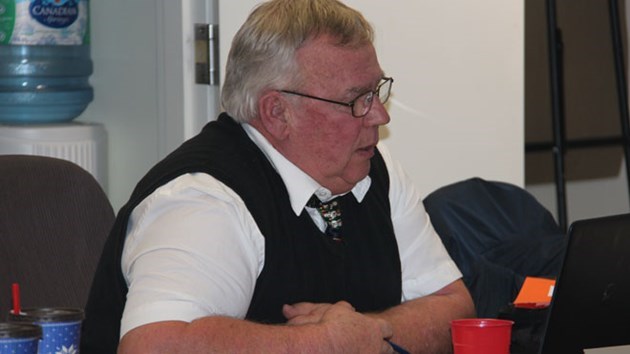A Rainbow District School Board trustee said he's “very disappointed” by a motion set to be tabled at the board's July 5 public meeting that would prohibit note-taking by trustees at in-camera meetings.
A retired police officer, Larry Killens said he took extensive notes throughout his policing career, something that was crucial to his job. He said he does the same thing as a trustee, and finds it useful to refresh his memory.
“I need to look back and see 'What are the particulars?' and 'How should I vote on behalf of people who elected me?',” he said. “I have my notes, and it can take me right back to the very day.”
Killens said he's not the only Rainbow board trustee who takes notes at in-camera meetings.
“I didn't really pay that much attention to the other trustees,” he said. “I do know some do. They have asked people to repeat things so they can get it written down.”
Killens has represented the Manitoulin Island area on the school board for 12 years.
He has often found himself at odds with fellow trustees, and even filed an ombudsman complaint against the board last year regarding an in-camera issue.
This isn't the first change the Rainbow board has made to how its school board meetings are recorded.
In 2012, a motion was passed that restricts who can video-record public board meetings to members of the media and those who have permission from the director of education.
Rainbow board chair Doreen Dewar said the motion prohibiting note-taking by trustees at in-camera meetings, if passed, would serve to protect confidentiality.
Sensitive issues such as labour negotiations or personal information about individuals are sometimes discussed.
The possibility always exists that a trustee could lose track of their notes, and they could fall into the wrong hands, Dewar said.
“If you had a problem and you were a parent, or you had a child that had a problem, or if for some reason there was an employee with a difficulty, would you really want somebody to make a note with pen and paper and take the chance that might be out in the public?” she said.
The idea to change the rules came from a presentation by a lawyer at an Ontario Public School Boards Association (OPSBA) meeting, Dewar said.
The lawyer making the presentation said there's no reason a trustee should be taking notes at an in-camera meeting, and Dewar said she agrees.
“If you want to discuss the item again, and it's in-camera again, you can say point blank 'I'm not sure what was said about such and such a thing,'” she said, adding that basic minutes are taken at Rainbow's in-camera meetings.
“I'm sure you could ask the people around the table to refresh your memory as to what they heard.”
Killens said he sees Dewar's point about confidentiality, but said a trustee who left their notes lying around and let them get into the wrong hands would be in a lot of trouble.
Even if an individual filed a freedom of information request to see a trustee's notes, confidential material would be redacted, he said.
Killens said the proposed changes don't make the board look good. “And we brag about being accountable and transparent,” he said.
Dewar, however, downplays the issue's importance, saying it doesn't affect the delivery of education.
“It's a housekeeping rule,” she said. “Trustees, when they take their oath, it's part of what we promise. It's not that large an issue.
Why it has been blown all out of proportion? We're not asking trustees to do anything they didn't sign onto.”
